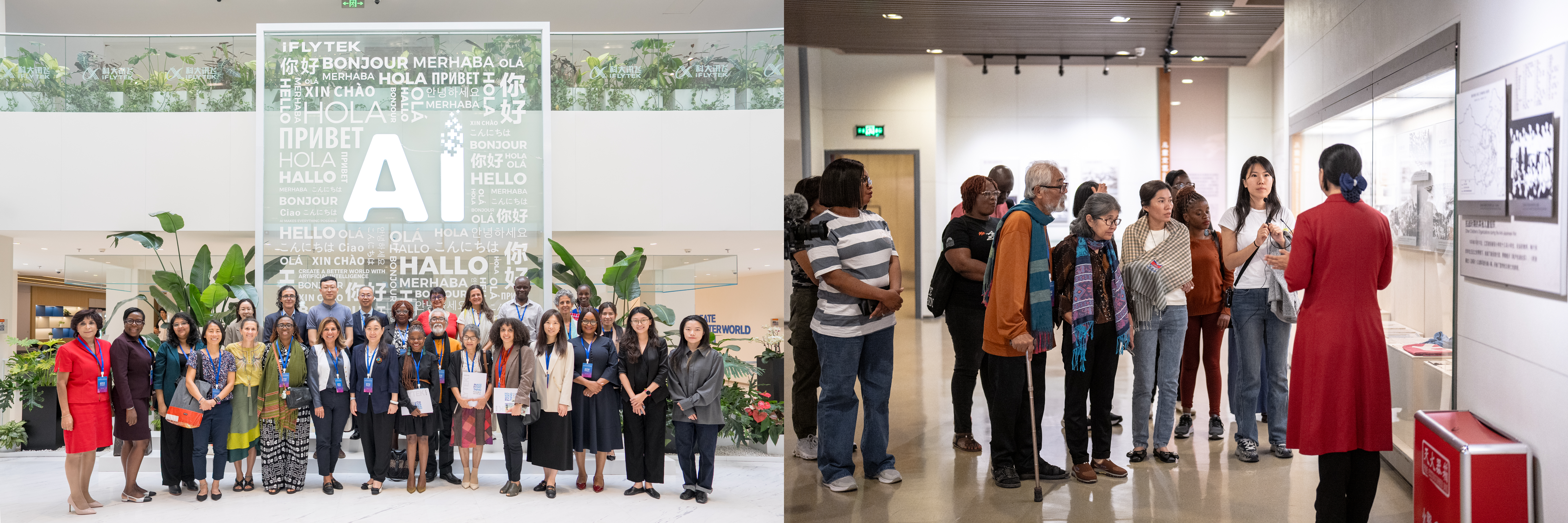2025 International Symposium on Girls' and Women's Education Was Held in Beijing
On September 20, the 2025 International Symposium on Girls' and Women's Education was held in Beijing. The event was organized by the Chinese National Commission for UNESCO, United Nations Educational, Scientific and Cultural Organization (UNESCO), and Beijing Normal University, and hosted by UNESCO International Research and Training Centre for Rural Education (INRULED).
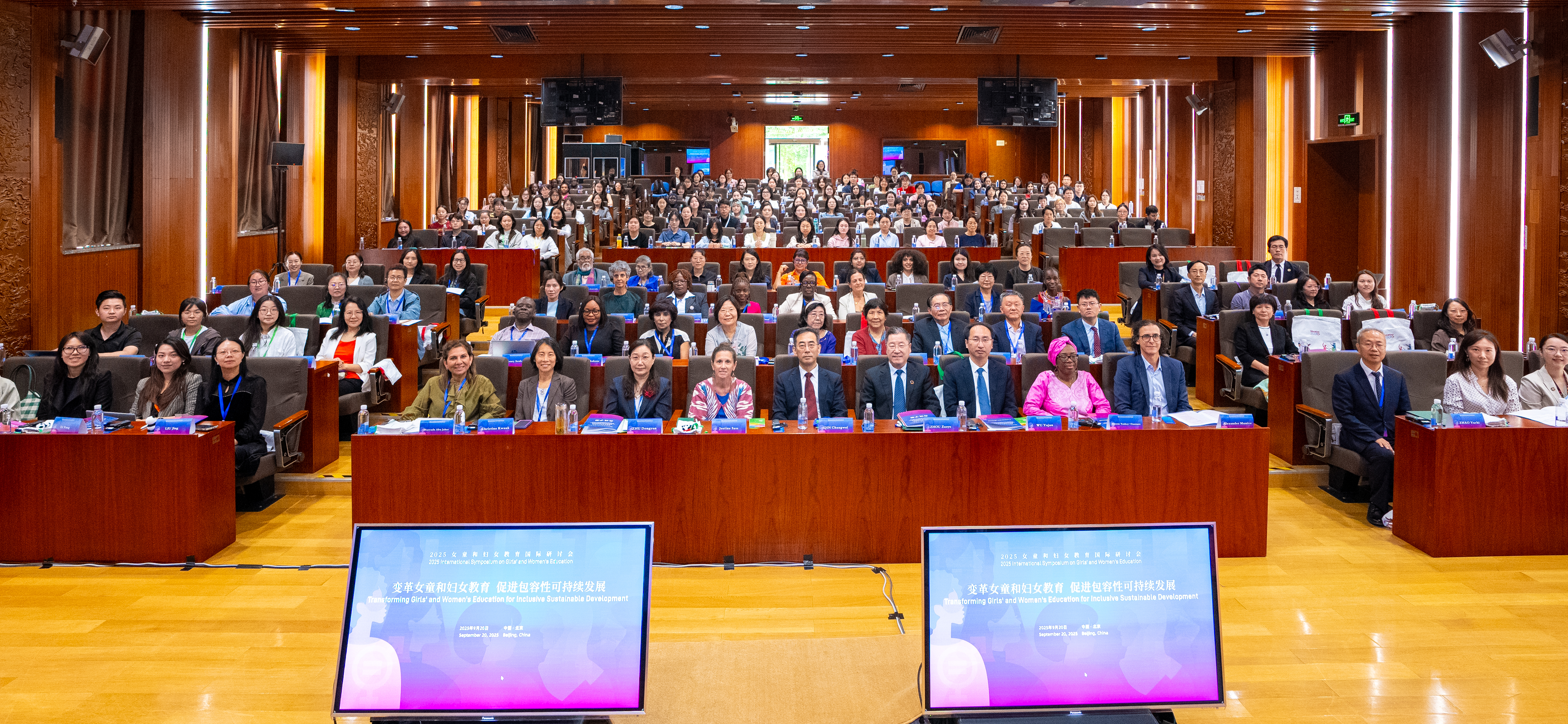
The year 2025 marks a significant milestone in the global pursuit of gender equality, marking the 30th anniversary of the Fourth World Conference on Women held in Beijing and the 10th anniversary of the UNESCO Prize for Girls' and Women's Education. This symposium serves as a platform for laureates, jurors of the UNESCO Prize for Girls' and Women's Education, as well as researchers and practitioners, to exchange knowledge and experience aimed at scaling up efforts to promote girls' and women's education. It will also renew collective momentum in supporting girls' and women's right to education as the foundation for equality, dignity, and lifelong empowerment.
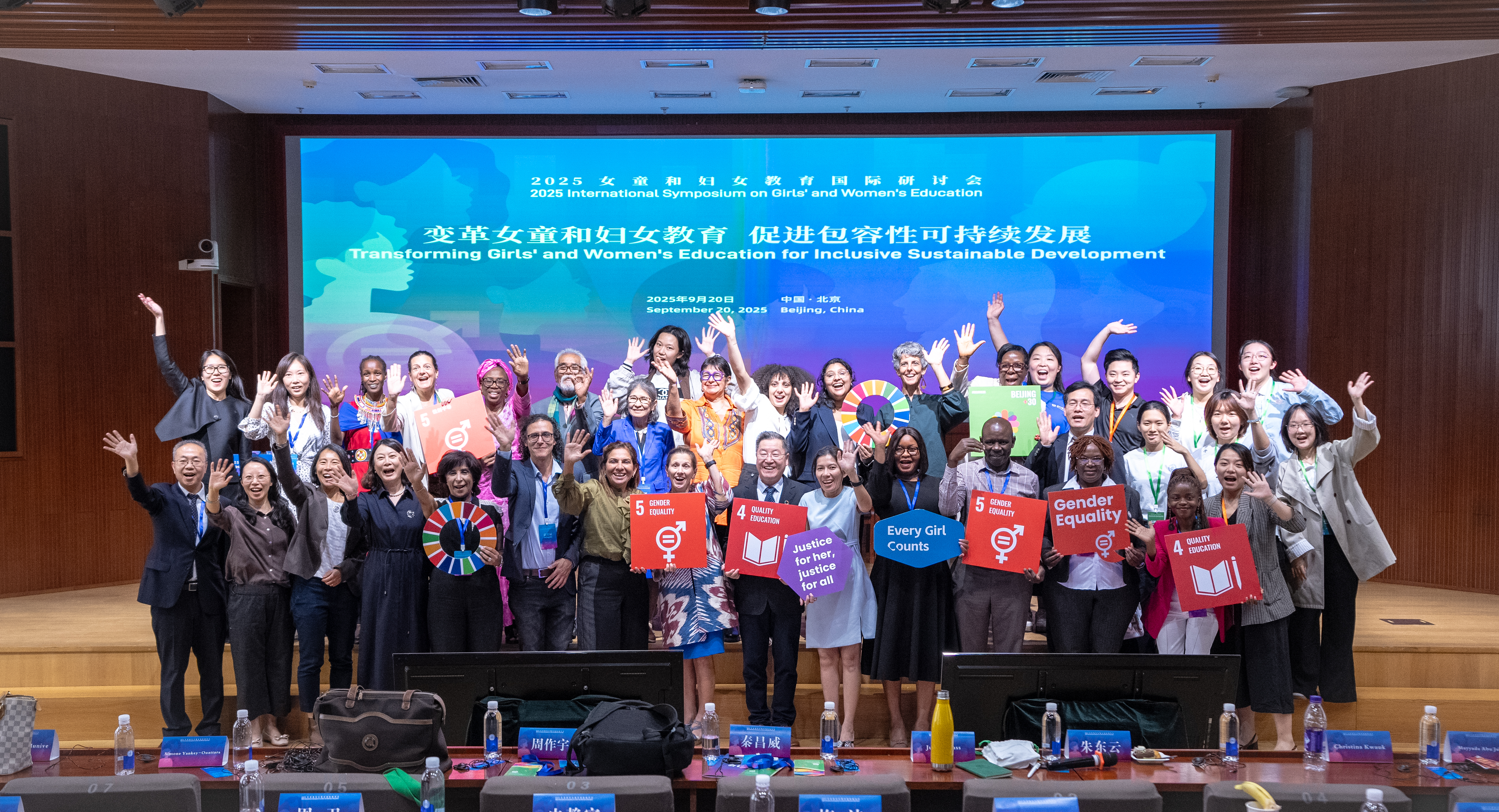
In his opening remarks, Prof. Zhou Zuoyu, Vice Chairman of the University Council of Beijing Normal University and Director of INRULED, emphasized that women are a key force for social progress and education is central to achieving gender equality. While global efforts have made progress in advancing girls' and women's education, major challenges remain, including school dropouts anf the digital divide. Prof. Zhou Zuoyu introduced INRULED's “Closing the Digital Divide for Women and Girls” project, implemented in Ghana and Tanzania in cooperation with UNESCO. He called on all stakeholders to take the symposium as an opportunity to strengthen consensus and deepen cooperation, using education to advance the Sustainable Development Goals and contribute to building a shared future for humanity.
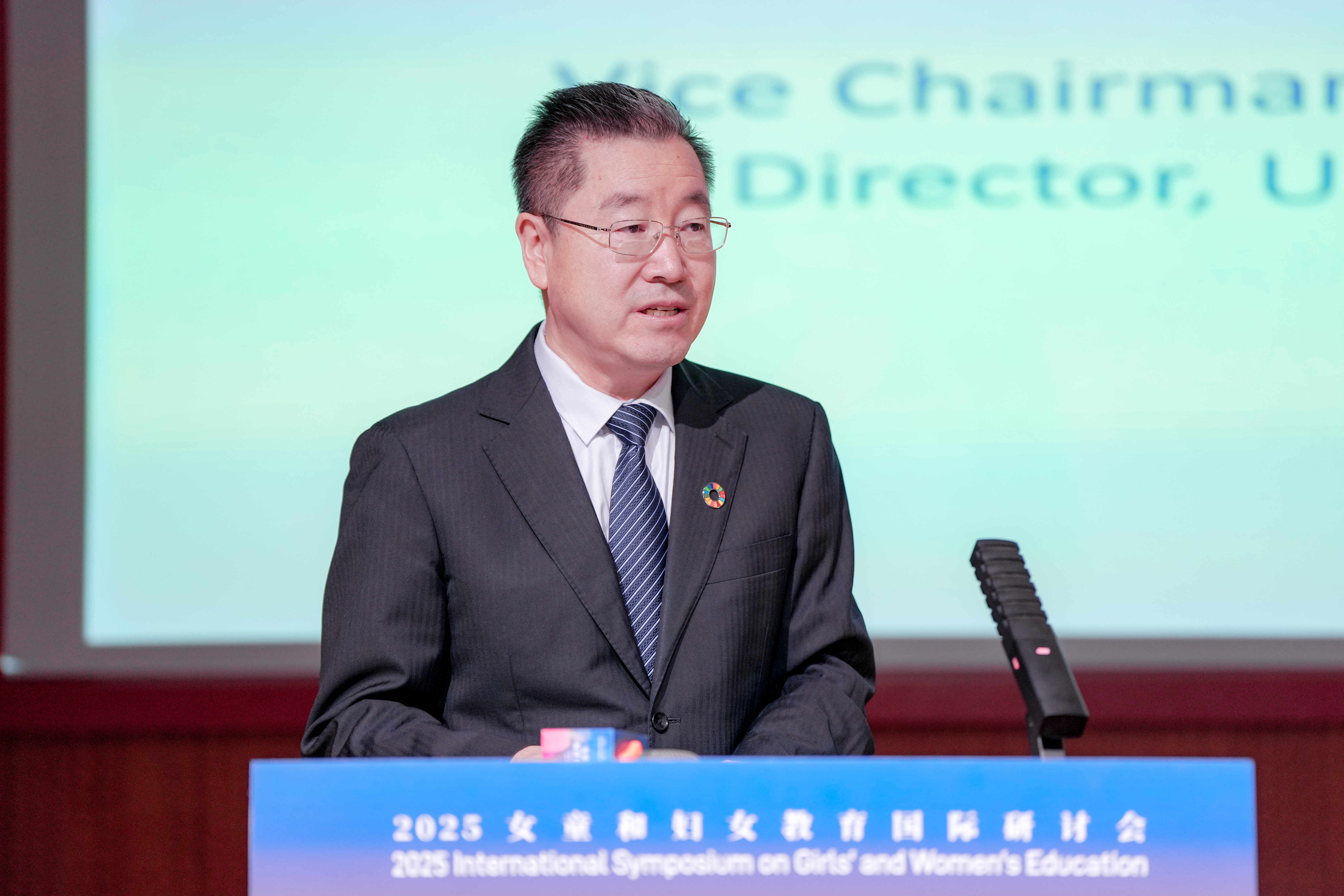
Prof. Shahbaz Khan, Director of UNESCO's East Asia Regional Office, stated that education is the key to unlocking human potential and driving social transformation. He stressed the need for inclusive education systems as the foundation for eliminating inequality and ensuring the full development of every girl and woman. He noted that over the past decade, the UNESCO Prize for Girls' and Women's Education has become a vital global platform for recognizing innovative practices and showcasing the transformative power of education. He reaffirmed UNESCO's commitment to strengthening international cooperation and harnessing education as a foundation for prosperity, equity, and lasting peace.
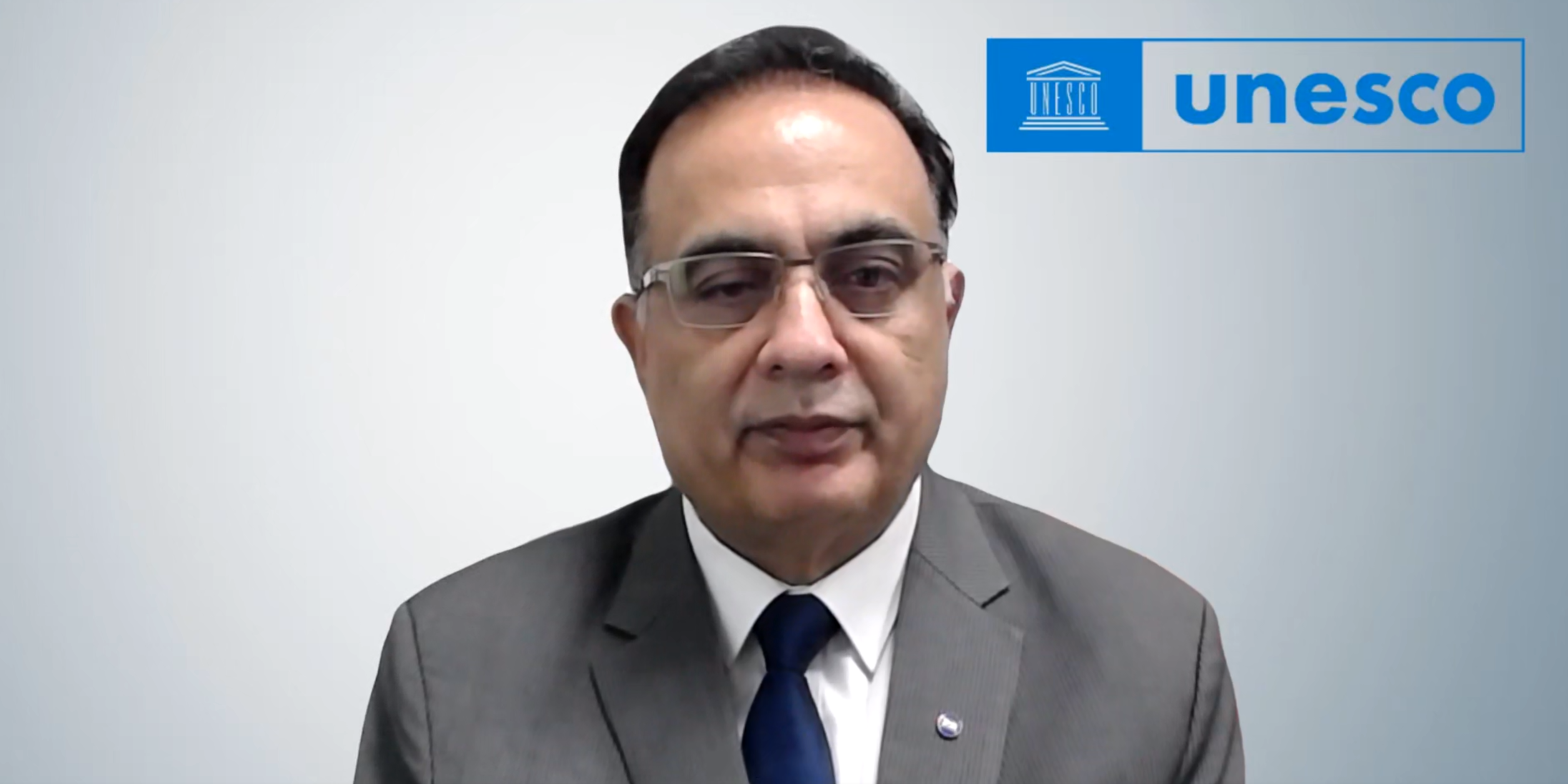
Mr. Qin Changwei, Secretary-General of the Chinese National Commission for UNESCO, highlighted the essential role of the Prize in advancing the global cause of girls and women's education. He pointed out that while progress toward the Education 2030 Agenda continues, deep-rooted challenges remain, including large numbers of out-of-school children and shortages of teachers. He emphasized that China has always taken gender equality as a basic national policy and has actively pursued systemic approaches such as improving legal frameworks, increasing educational investment, mobilizing social resources, and deepening international cooperation. He called on the international community to consolidate consensus, increase investment in girls' and women's education, and jointly contribute to a more inclusive and sustainable future.
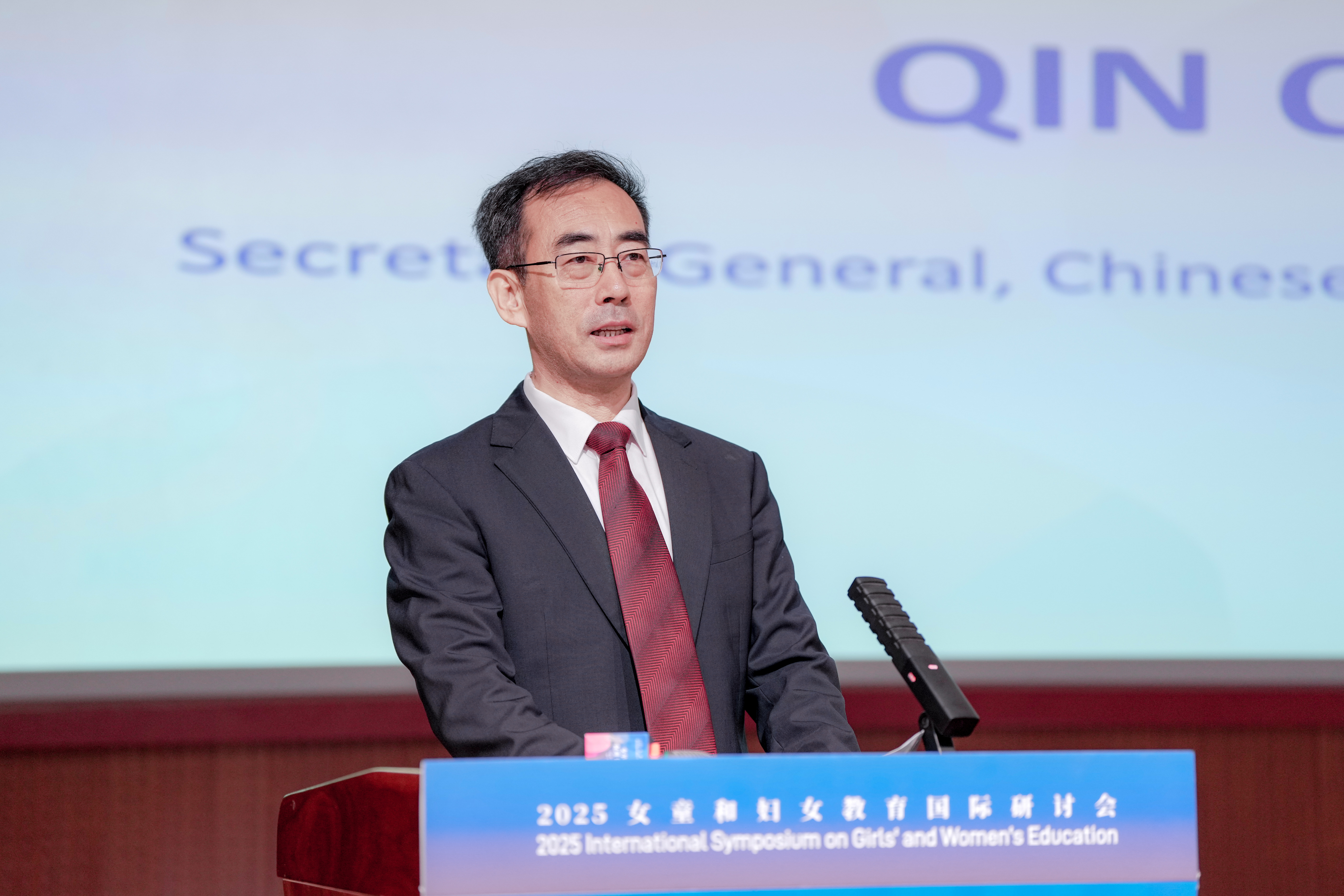
The opening session was moderated by Dr. Zhao Yuchi, Executive Director of INRULED.
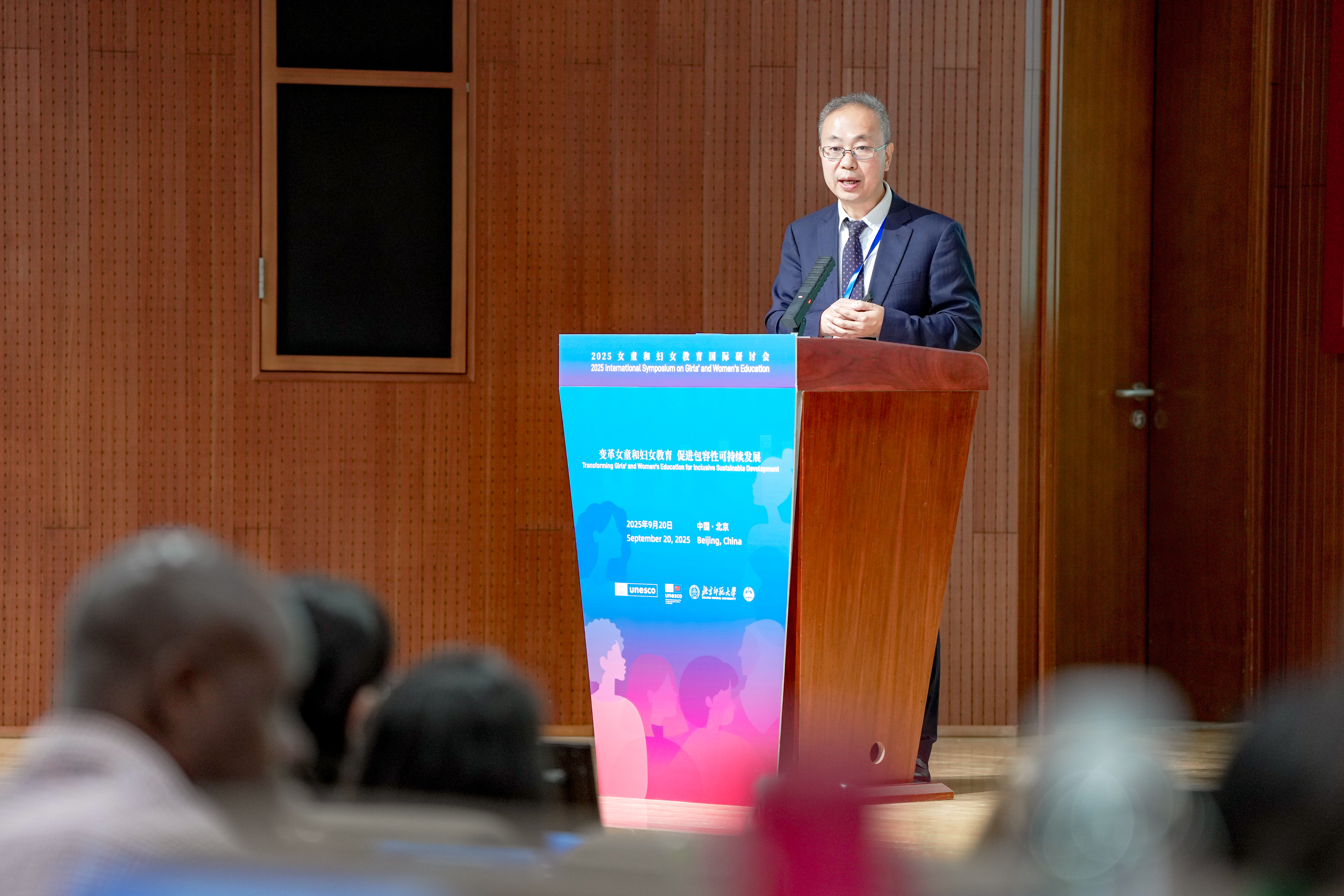
During the keynote Session, Ms. Justine Sass, Chief of Section of Education for Inclusion and Gender Equality, UNESCO, highlighted that despite positive global progress on girls' and women's education, over 100 million girls remain out of school. Persistent challenges include gender gaps in learning outcomes, underrepresentation of women in STEM fields, and continued disparities in educational leadership. She stressed that gender equality must be placed at the core of education policy and called for strengthening data collection, reforming curricula, enhancing teachers' gender sensitivity, and advancing cross-sectoral collaboration. She reaffirmed UNESCO's commitment to working with partners to create more opportunities for girls and women.
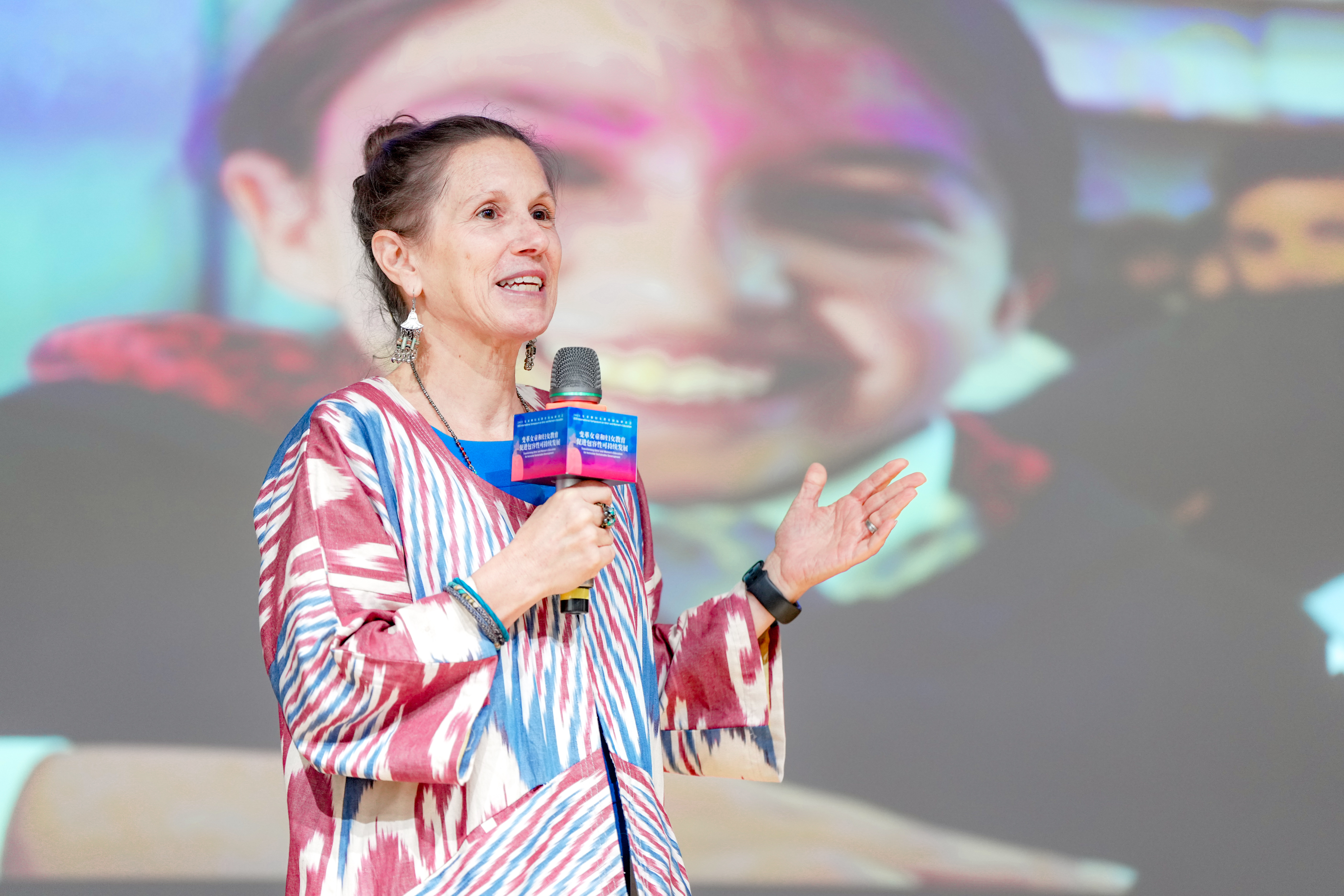
Dr. Zhao Yuchi, Executive Director of INRULED, emphasized in his speech that China has consistently advanced education and gender equality as national priorities through four consecutive cycles of The Outline for Women's Development in China. These efforts have promoted comprehensive progress from literacy to higher education, vocational education, and science education. Looking ahead, he noted that China will continue to expand equitable access across all levels of education, encourage more women to pursue STEM, and fully integrate gender equality into the education system. INRULED, he added, will also leverage digital and AI technologies to empower women and deepen international cooperation to achieve the global sustainable development agenda.
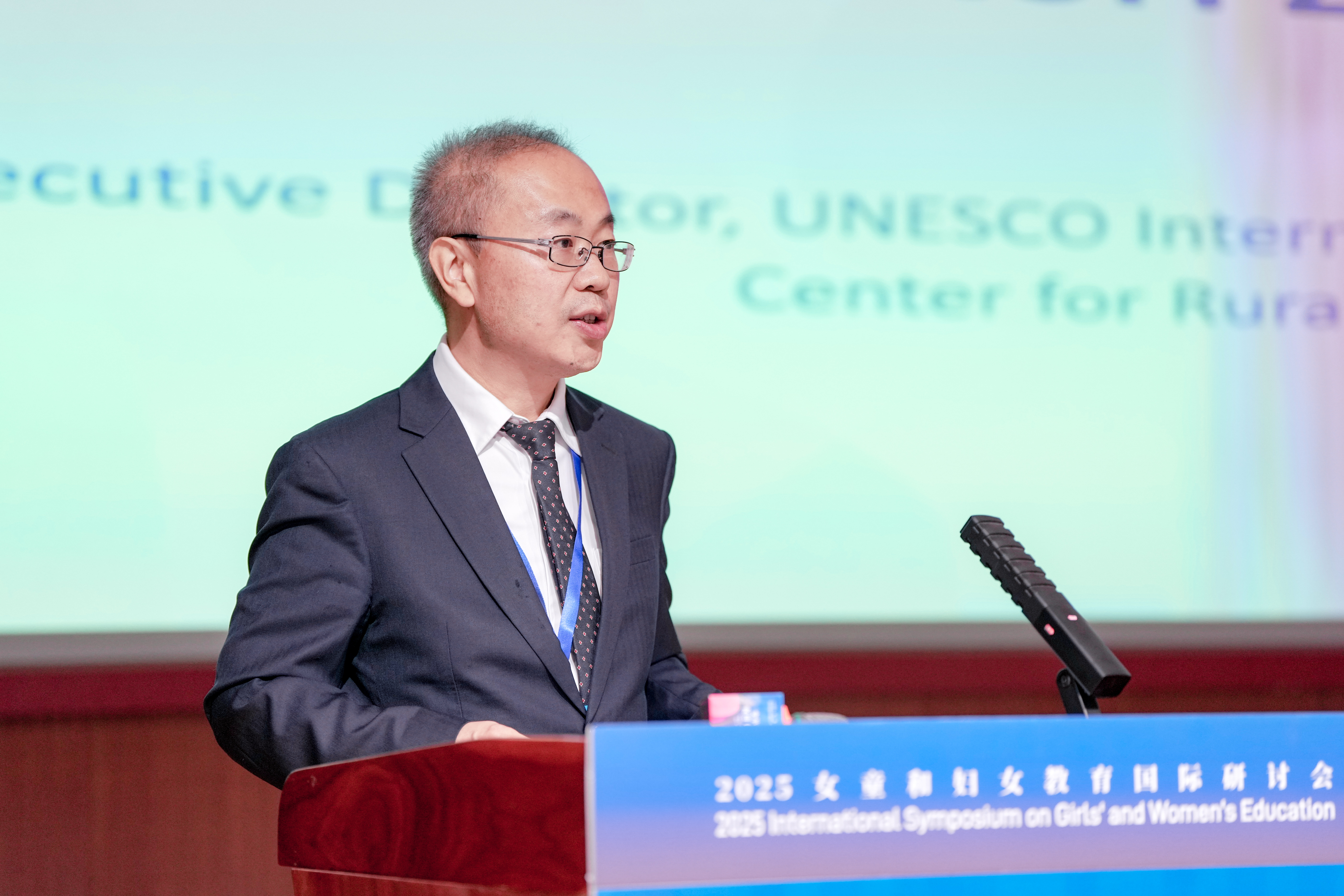
The keynote session was moderated by Ms. Xiao Lei, Coordinator of the UNESCO Prize for Girls' and Women's Education.
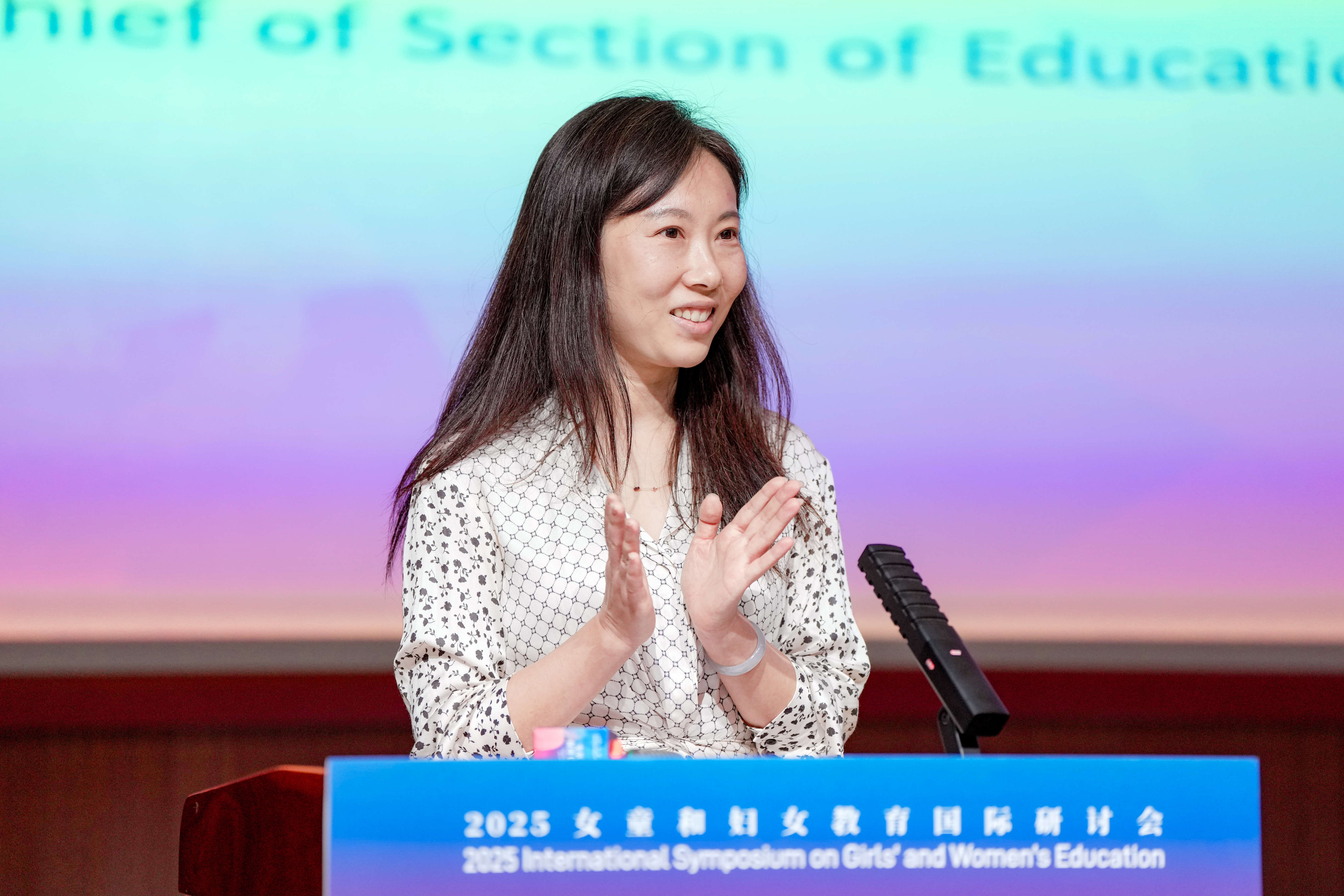
In Session 1: Fostering an Enabling Environment for Gender-Transformative Education, Ms. Amal Mobadda, Chief Executive Officer of Fundraising at Misr El-Kheir Foundation in Egypt, Ms. Zhu Dongyun, Deputy Secretary-General of the China Children and Teenagers' Fund, Mr. Henry Senkasi, Country Director of the Promoting Equality in African Schools Network in Uganda, and Ms. Namenda Ikakena, Executive Director of Campaign for Female Education in Zambia shared their practical experiences. They emphasized the urgent need for robust policy frameworks and safe, inclusive learning environments. Speakers highlighted the role of communities and families in providing material, skills, and safety support, enabling girls to overcome poverty and discrimination. This session was moderated by Simone Yankey-Ouattara, Juror of the UNESCO Prize for Girls' and Women's Education and Coordinator of the African Union International Centre for Girls' and Women's Education.
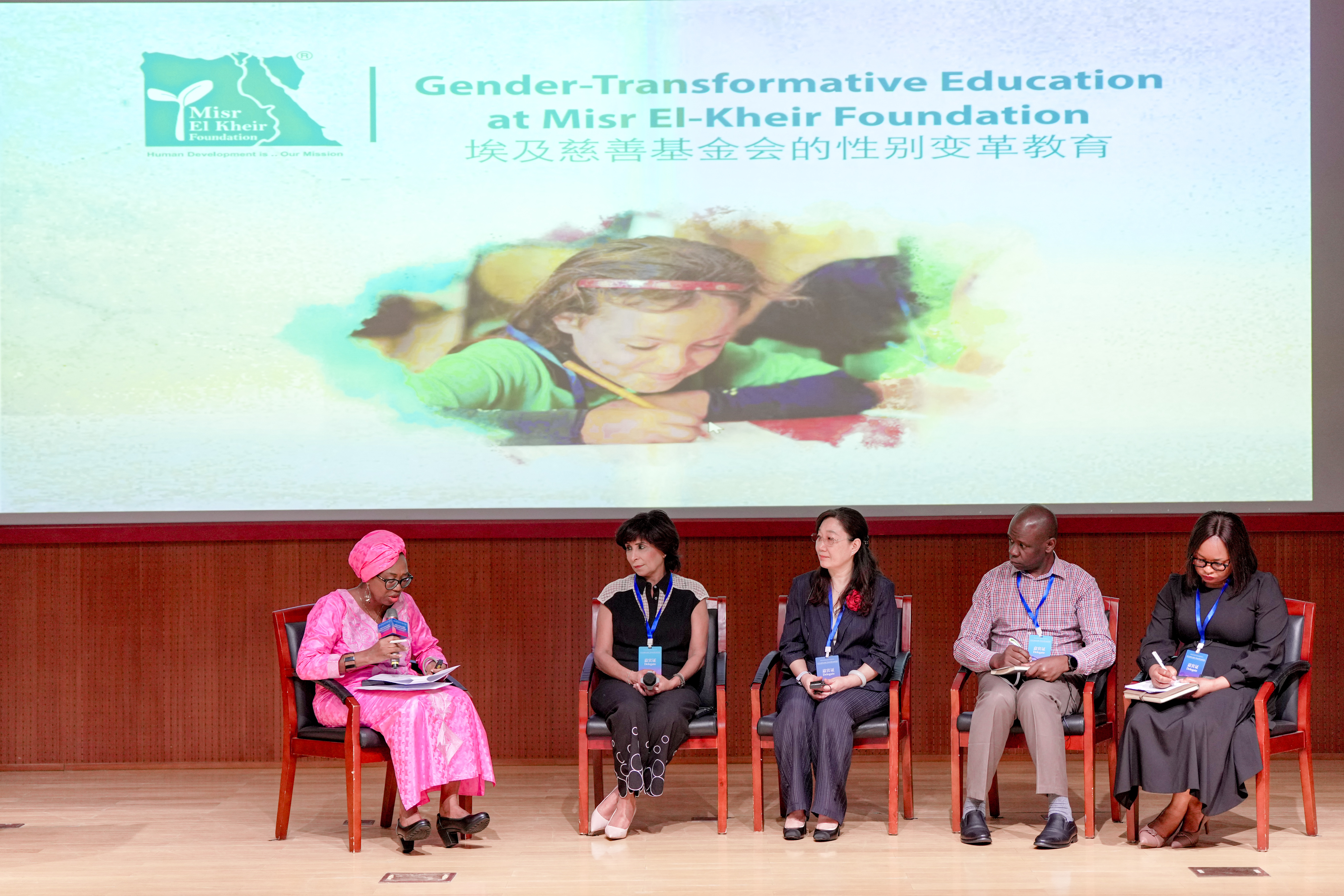
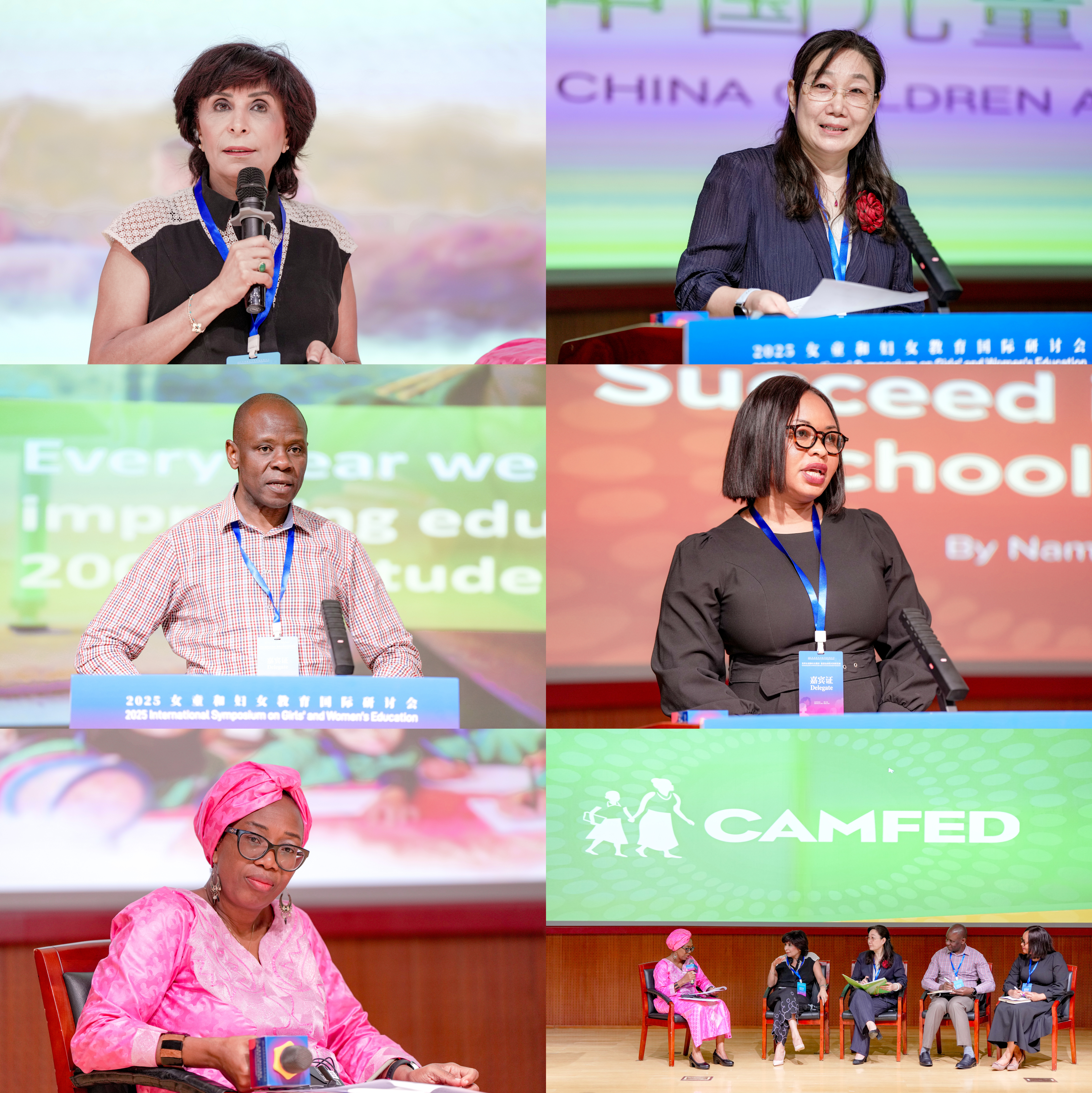
In Session 2: Breaking Barriers for Marginalized Girls and Women, Ms. Pasha Fajer Rabia, Executive Director of Pakistan Alliance for Girls' Education - PAGE in Pakistan, Dr. Sompop Jantraka, Founder of the Development and Education Programme for Daughters and Communities Center in the Greater Mekong Sub-Region in Thailand, Prof. Zhang Lili, Professor of Faculty of Education at Beijing Normal University, Ms. Novlette Howell, Executive Director of the Women's Centre of Jamaica Foundation in Jamaica, and Ms. Deborah Sabuni, Communication Manager at the Girls Livelihood and Mentorship Initiative in Tanzania discussed mechanisms for reintegrating out-of-school girls, young mothers' reentry to school, and advancing sexual health education. The session stressed the importance of building sustainable education support systems through policy, community engagement, and international cooperation. The session was moderated by Mr. Alexander Munive, Juror of the UNESCO Prize for Girls' and Women's Education and Director of Senior Technical Lead of Global Center for Gender Equality.
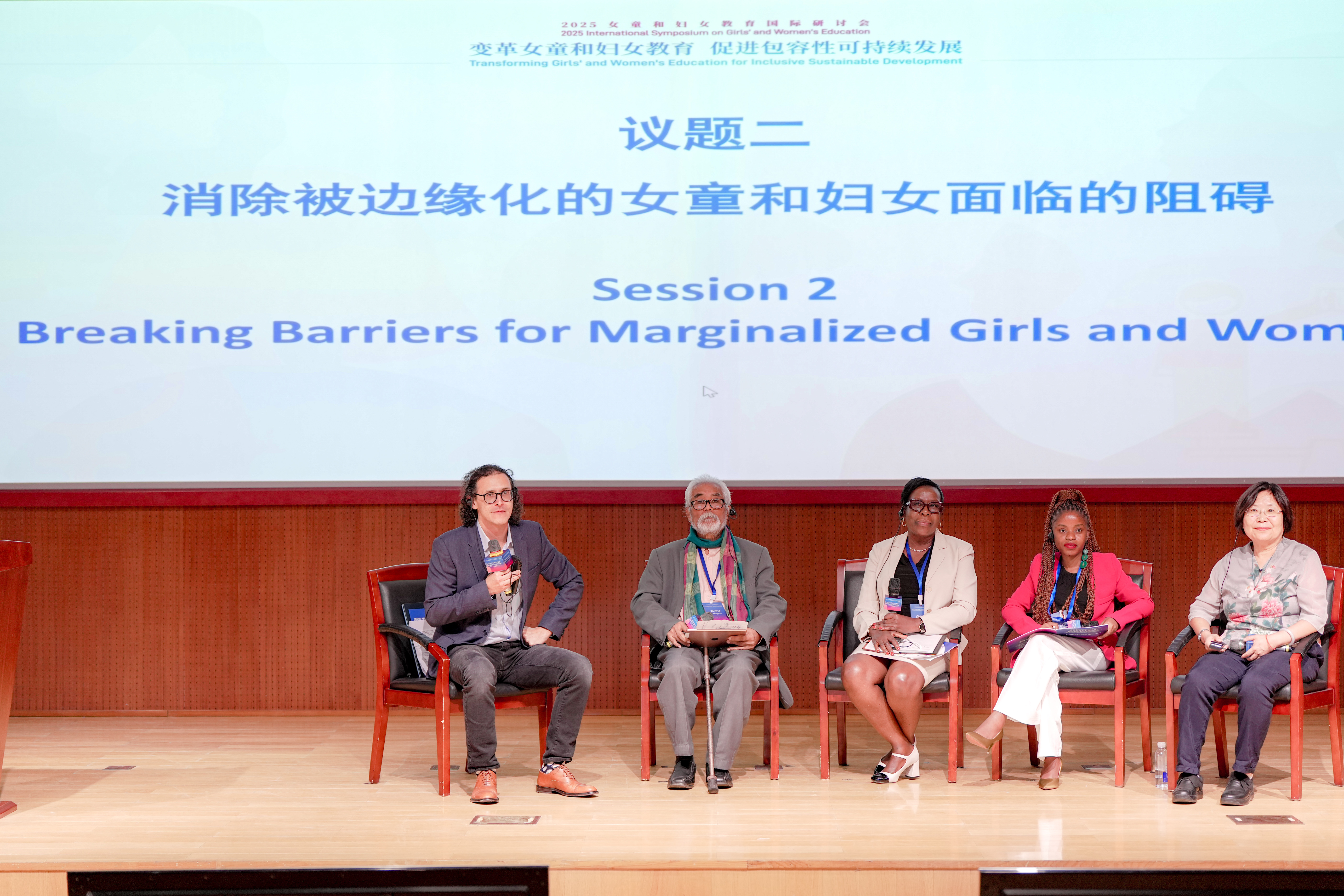
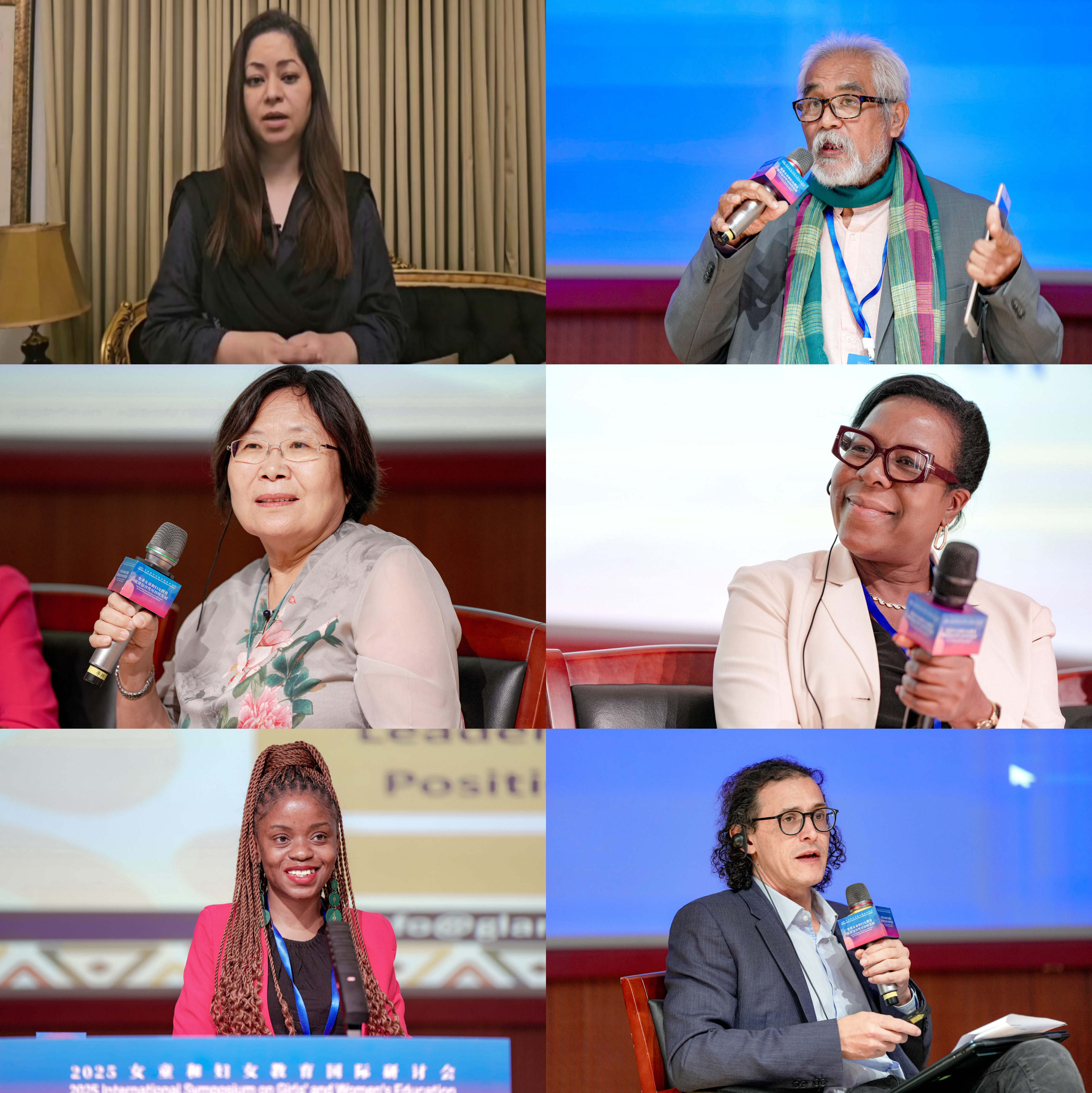
In Session 3: Enhancing Life Skills, Livelihoods Health, and Well-being for Girls' and Women's Empowerment, Ms. Evernice Munando, Executive Director of the Female Students Network Trust in Zimbabwe, Prof. Ma Yinghua, Professor of School of Public Health at Peking University, Ms. Cristiana Pereira Pinto, Systemic Education Director at Girl MOVE Academy in Mozambique, Ms. Soseihak Nead Bunna, Associate Director at Room to Read in Cambodia, Dr. Chen Qiong, Director of the Beijing Yichuang Development Center & Beijing Rural Women Cultural Development Center, and Ms. Selina Nkoile, Executive Director of Nashipai Maasai Community Projects in Kenya, shared innovative practices, including female student leadership training, campus anti-violence mechanisms, integrated support systems for rural women. They stressed the need for stronger policy and financial support, as well as collaboration among families, schools, communities, and enterprises, to strengthen girls' and women's sustainable development. This session was moderated by Dr. Mayyada Abu Jaber, Juror of the UNESCO Prize for Girls and Women's Education and CEO of JoWomenomics in Jordan.
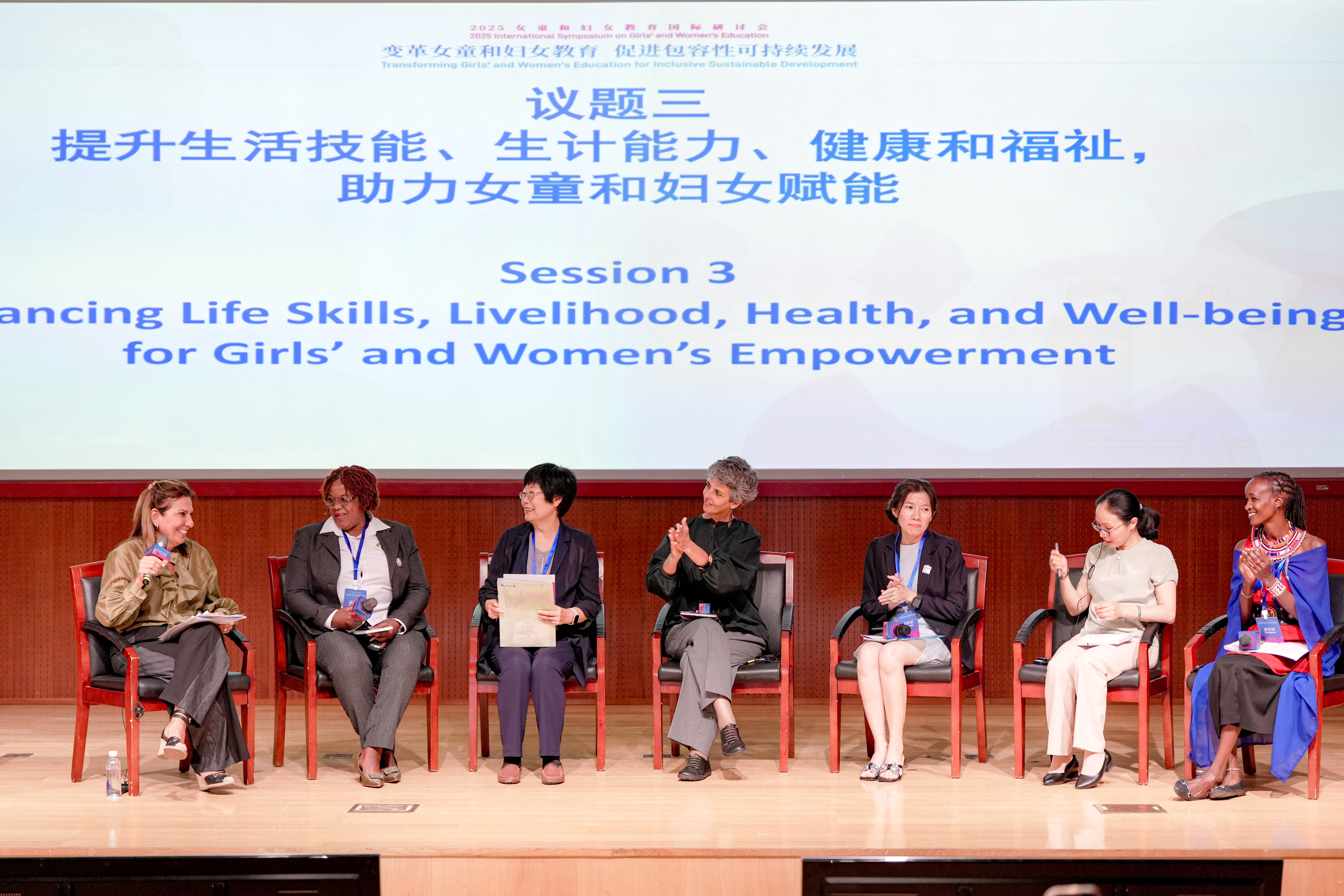
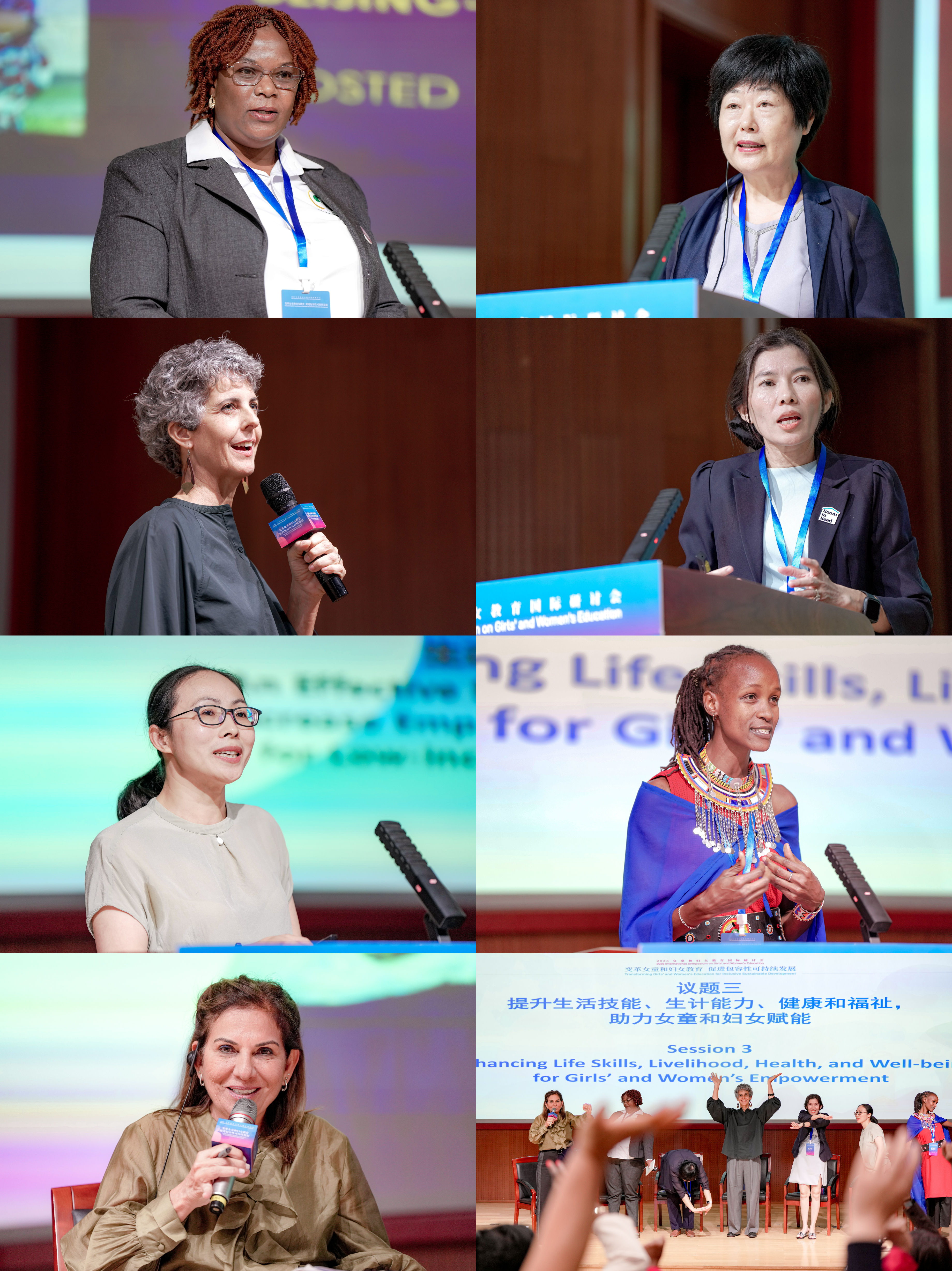
In Session 4: Promoting STEM Education and Closing the Digital Divide for Girls and Women, Ms. Johanna Johnson, the Mini Academy of Science and Technology in Peru, Ms. Maya Moussa, Co-Founder of “She Codes Future” in Lebanon, Ms. Kemly Camacho, General Coordinator of Sulá Batsú in Costa Rica, Ms. Song Tingting, Vice President of Beijing Kuaishou Technology, Ms. Poornima Meegammana, Director at Shilpa Sayura Foundation in Sri Lanka, Ms. Leticia Cardoso, Program Coordinator at {reprograma} in Brazil, and Ms. Niu Xinyi, Programme Coordinator at INRULED, shared insights on enabling more girls and women to thrive in the digital era. They highlighted the importance of improving digital infrastructure, developing localized curricula, and leveraging corporate platforms, while integrating cybersecurity and gender equality into education systems to increase women's participation in AI and data governance. Panelists also called for integrating arts into STEM education, promoting female role models, scaling successful pilots into polices, and emphasizing early, interdisciplinary training that links digital and green skills. The session was moderated by Dr. Christina Kwauk, Juror of the UNESCO Prize for Girls and Women's Education and Founder of Infinite Associates.
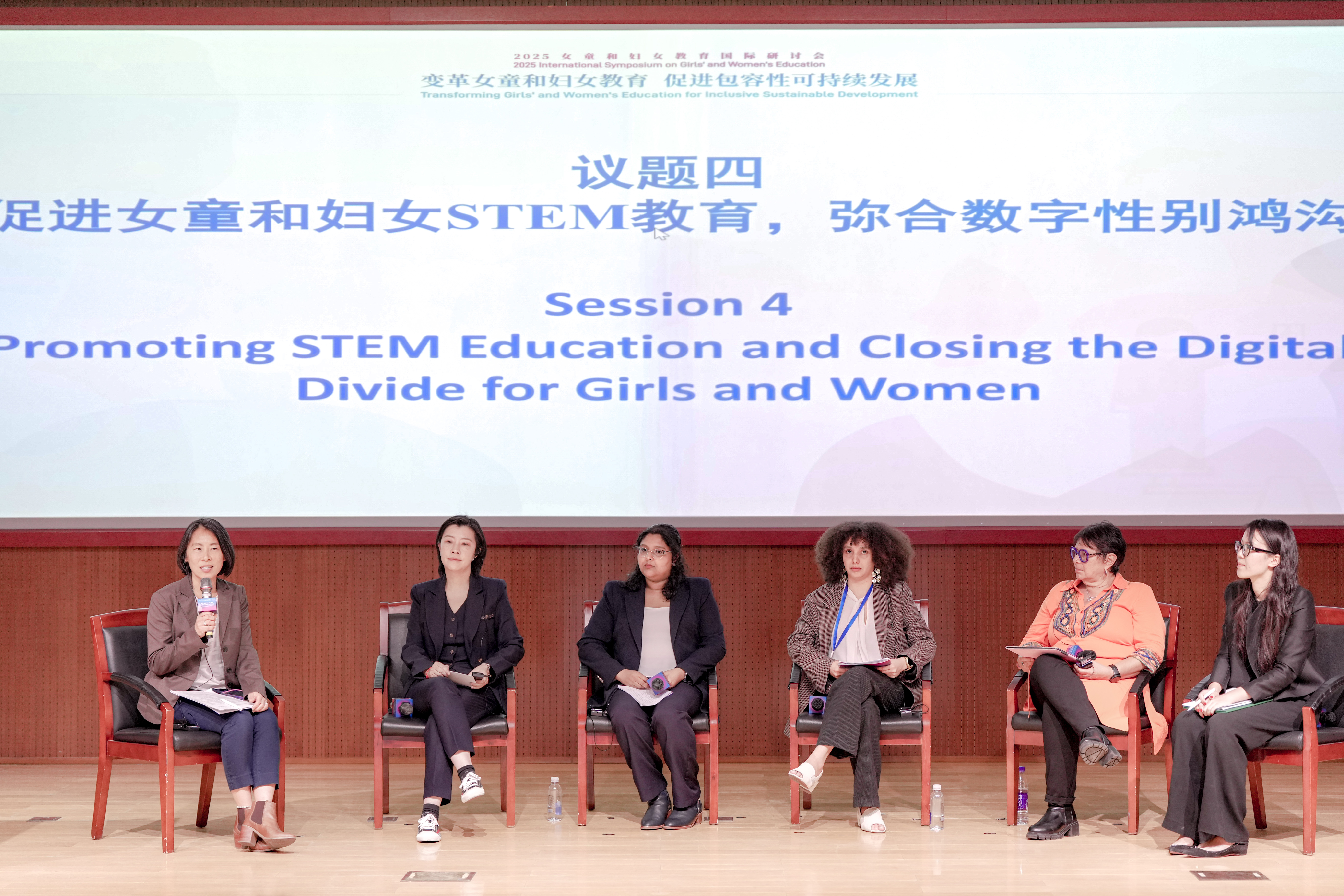
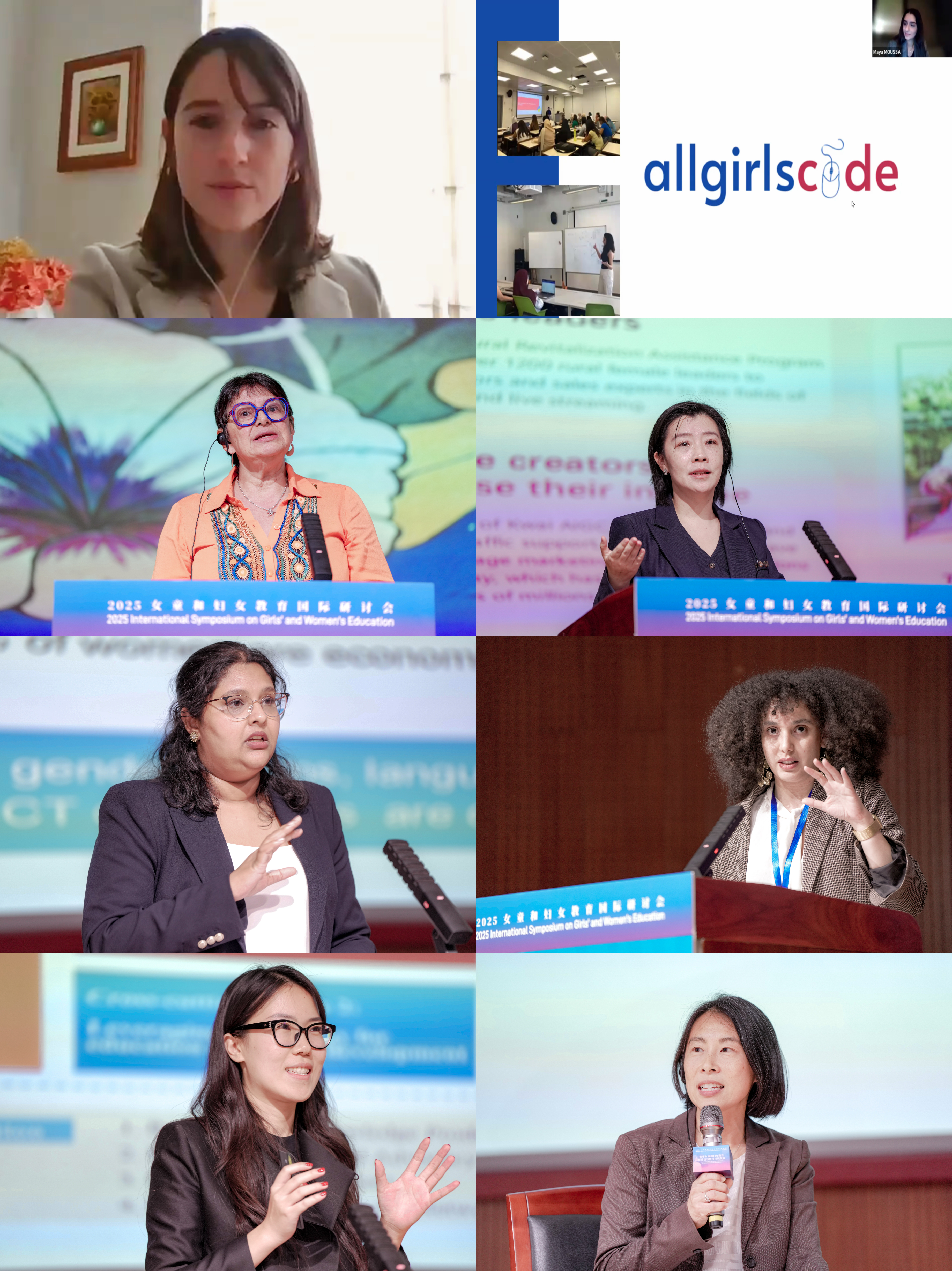
At the closing session, Ms. Justine Sass emphasized that the symposium highlighted global wisdom and experience, demonstrating the central role of education in advancing gender equality, enhancing life skills, and driving social change. She called for governments, businesses, families, and communities to work together to build safe, inclusive, and equitable learning environments that empower girls and women as innovators, leaders, and change-makers. Prof. Zhou Zuoyu, in his closing remarks, noted that the symposium not only reviewed progress over the past decade of the Prize but also charted the path ahead. By sharing real stories of how education transformed women's lives, he called for joint efforts to bridge digital, regional, and social divides, dismantle prejudice and discrimination, and create equal opportunities for all women to thrive.
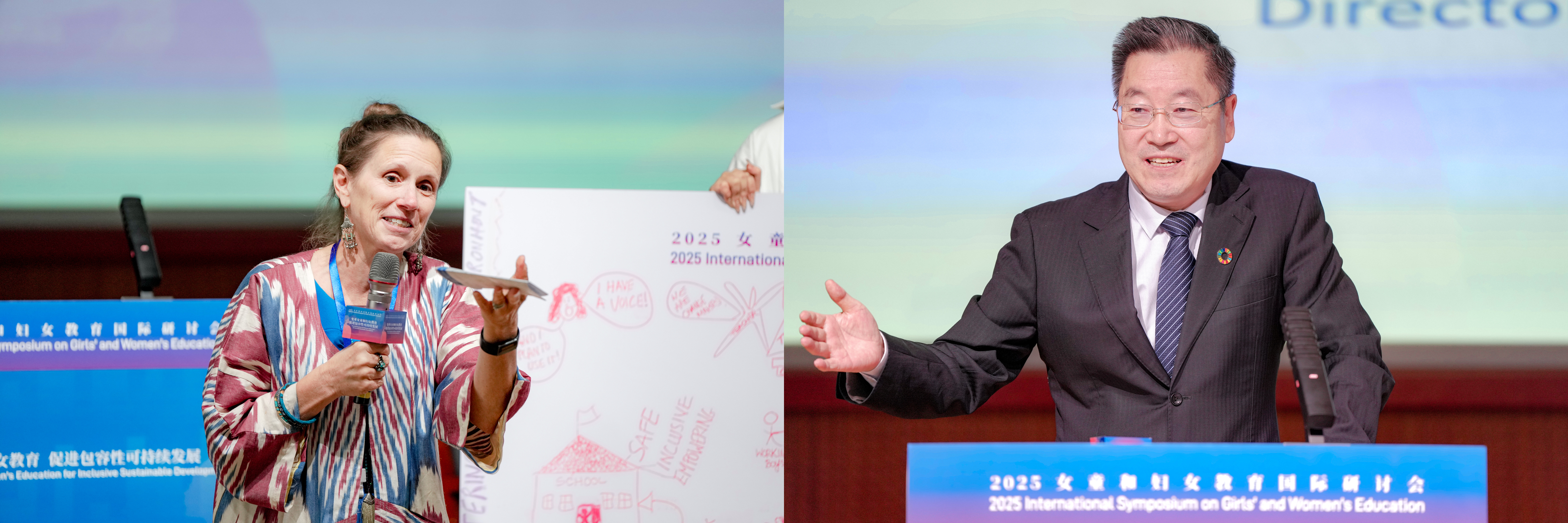
During their stay in Beijing, international guests attended the 2025 Award Ceremony and the 10th Anniversary Celebration of the UNESCO Prize for Girls' and Women's Education, and also visited iFlytek and the China Women and Children's Museum.
